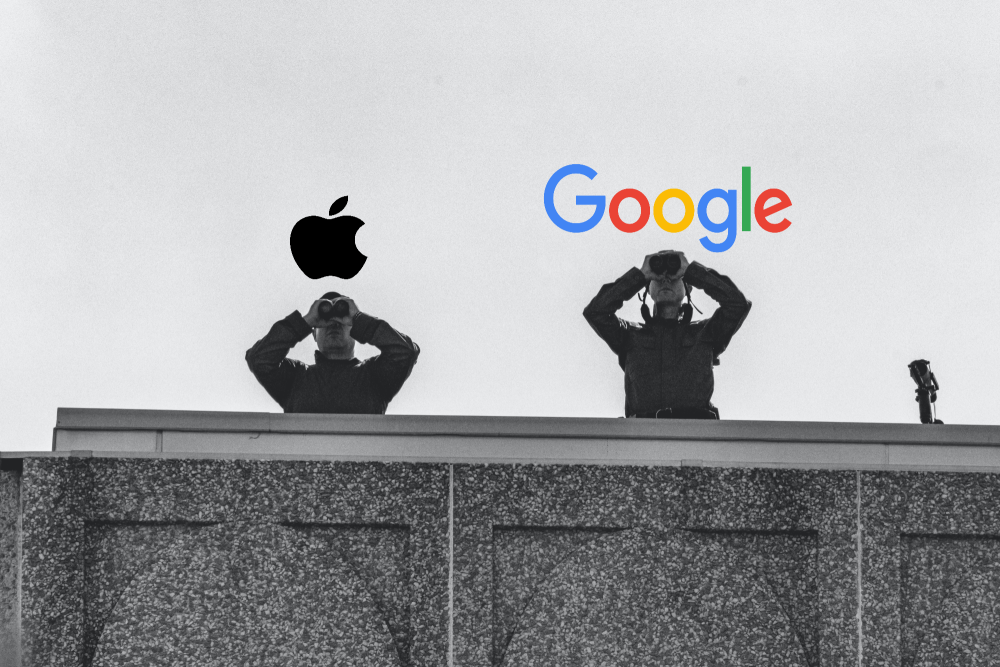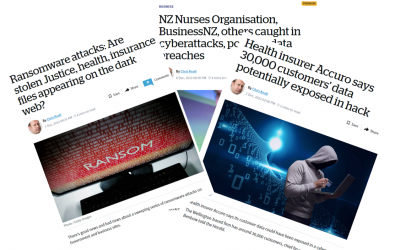Your own personalised stalker
It always seemed slightly creepy that your computer shows advertising that is strangely accurately targeted at things you might have been interested in. On the surface, that seems quite useful. If you have to tolerate ads on your screen, at least having them show things you were interested in seems helpful.
Instead, we wonder how the system knows. It feels like a breach of our privacy.
It all starts when you install an app, and it pops up a question asking for permission to use your location, and/or your camera and/or your microphone.
This is useful for advertisers. For example, they can use your location. If the app reports this back to the content provider, they can match up your location and compare you to other people nearby. If you tend to go to the same places as other people, you are probably interested in the same things, so an advertiser might use that assumption to present advertising to you, or other people that you spend time with.
That does sound a bit overreaching, but we reluctantly agree to the presented terms simply because we want to use the app. If that is a condition of use, and we want to use the app, then we agree.
So, now we are seeing consumers getting the choice to push back.

Apple
Now, with iOS15, Apple are saying that you will get to see what apps are accessing your data. You will be able to see when an app used that permission, and there it was sent to. Whether that list of third party sites is any use or not is meaningful is unclear.
Not quite as advanced but following quickly behind is Google Android. With Android 12, you will have the option to de-personalise your data. They will still track usage, but won’t link it back to you.
Is there any truth to the rumour that your phone or TV is listening to you, and presented content based on private conversations it overhears?
Given how poor the voice recognition is on phones , cars, or tools like Alexa or Siri, its pretty evident this can’t be reality. If it, is, then heaven only knows what it thinks it’s hearing. The voice recognition tools are getting better all the time, but there is a long way to go.
Kinetics KARE clients – we’ve just added a layer of security
With the latest news of yet another local New Zealand high-profile cyber attack, it must be obvious that cyber-threats are real. EVERYONE is at risk of cyber attack! This latest incident is particularly close to home for me, because I chair the board of one of the...
Multifactor Authentication (MFA) gets even more secure!
Microsoft are making their authenticator even safer! Most of us will have experienced random pop-ups on authenticator asking us to approve access to our systems. We will have wondered what triggered it. Is it a hacker? Now we'll be able to get more information. Your...
Is your cyber-insurer testing your business?
Over the last month, we’d heard about this happening in the US and now it seems to be happening in NZ as well. Cyber insurers are working hard to mitigate their risk and that includes stepping up their testing of their clients. Right now, that appears to be more...
Is public WiFi safe?
Free public WiFi can be tempting.Whether it is in cafe, an airport or a shopping centre, free Wi-Fi is very tempting. Who wouldn’t want faster data, without the cost. But, as with anything that is free, be very careful! It is very easy to become a victim of something...
What can you expect if you get crypto-locked?
!Right now, there’s a crypto-locked server in the lab in our Kinetics Auckland Office. It’s not from one of our clients, but a business that’s come to us, after the event, asking for help. We are busy rebuilding it and restoring the data and configuration to the...
Are you meeting the requirements of your Cyber Insurer? (And are you minimising your risk anyway?)
Given the scale of cyber-attacks, we aren’t surprised to be hearing reports of insurers applying a "duty of care" test before agreeing to pay out. Despite sending chills up your spine, when you consider this, it makes sense as Insurers do the same thing to vehicles,...
3 billion devices are at risk. Does that include you? (it probably does)
An actively exploited high severity "zero day" cyber-security exploit has been found in the Google Chrome web browser. With over 3 billion users it will take some time for the update roll out to everyone. Meanwhile, everyone who uses Chrome on their PC is...
MFA is important, but it is no silver-bullet.
There are no silver bullets. No one can guarantee you won’t be hacked, but we can make it harder. We can reduce your cyber-risk by taking reasonable steps to make it harder to hack you. The key is to have layers of security, and to keep reviewing the technology in use...
Disaster at Kinetics
Sometimes, it feels like there is only bad news. All businesses face challenges with suppliers, our own people and even some of our customers. As managers, we work hard to get ahead of issues and create systems to mitigate problems, but there’s always something. ...
MS OFFICE ZERO DAY ATTACK – MAY 31st
One of the scariest news items to wake up to is that there is a ‘zero-day’ vulnerability in a common piece of software. That means that the hacking community has found an opportunity to hack a bit of software and there is no update yet – ‘zero’ days to apply a fix....










